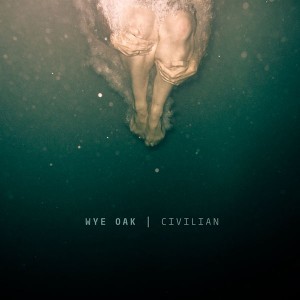Top 20 tracks of 2011

It’s been a fantastic year for music. With that in mind (and in no particular order), The Spin Doctor brings you the top 20 tracks of 2011. As any “best of” list is highly subjective, leave a comment, and let The Nanfang community know what your favourite songs of the year were. Next week, we’ll run-down the top 10 albums of 2011. Without further ado…
1. James Blake – “The Wilhelm Scream” from the album James Blake
Following a run of successful EPs, James Blake finally dropped his self-titled debut to much fanfare and a Mercury Prize nomination. While for some, his songcraft has a long way to go, his unique blend of dubstep, Soul/R&B comes together magically on “The Wilhelm Scream”. Blake’s use of lyrical repetition, stripped percussion and layered vocals is stunning: “I don’t know about my dreams… I don’t know about my dreaming anymore. All that I know is that I’m falling, falling, falling, falling… might as well fall in.” You’ll fall too.
2. M83 – “Midnight City” from the album Hurry Up, We’re Dreaming
M83’s smash double LP (seriously, who releases double LP’s anymore?) has finally brought Anthony Gonzalez the mainstream success he so rightly deserves. While there’s much to appreciate on Hurry Up… (see “Intro” featuring Zola Jesus, “Steve McQueen”, and the Spiritualized inspired slow burner, “Wait”) “Midnight City” is the undeniable showstopper. With enough synths and electronic percussion to make you think it’s still 1984, Gonzalez’ vocals give “Midnight City” the distinctly human element it needs to take off into the electro pop stratosphere.
3. Colin Stetson – “Judges” from the album New History of Warfare Volume 2: Judges
Having spent much of 2011 working with Bon Iver, Feist, and The National to name but a few, the Montreal based avant garde musician’s most impressive feat of the year was the release of his Polaris prize nominated sophomore LP. Arguably, the most original piece of music you’ll find this year, Stetson’s solo sax compositions are recorded live off the floor, with no edits or overdubs of any kind. Using multiple mics placed on his sax, on his neck, and throughout the studio, Stetson’s bass sax sounds like an elephant trampling through a living room. Turn “Judges” up loud and feel the floor shake.
4. Kurt Vile – “Baby’s Arms” from the album Smoke Ring For My Halo
So what if Vile licensed this gem to Bank of America? If that makes him a sellout then I wish more artists with Vile’s musical instincts would sell out. His acoustic guitar and smoky drawl on “Baby’s Arms” result in one of the prettiest melodies of the year.
5. Nas – “Nasty” from his upcoming 2012 LP
Remember when Nas was the most important figure in hip-hop? Well that Nas has returned… I hope. Whether his upcoming LP will be on the same street as first single, “Nasty”, remains to be seen but for now at least we have the single. And oh what a single it is. “Nasty” is a quick reminder of just how good Nas is when he’s on his game. When “Nasty’s” backing track cuts out halfway through the song, Nas doesn’t miss a beat, blazing through the remainder of the verse a cappella. Pray to the hip-hop gods the rest of the record is half as good.
6. Wye Oak – “Civilian” from the album Civilian
“Civilian” is the undisputed highlight of the Baltimore duo’s breakout third LP. Combining Jenn Wasner’s smoky, mid-range vocals with Andy Stack’s massive percussion, the folk/rock, shoegaze-like dreamscapes of “Civilian” are slow moving before inevitably exploding into a wall of sound. Somewhere, somehow Neil Young & Crazy Horse are green with envy.
7. Yuck – “Rubber” from the album Yuck
At just over seven minutes, album closer “Rubber” is an opus of distorted guitars, crashing cymbals, fuzzed out vocals, feedback, and… well, more distorted guitars. Reminiscent of Gish era Smashing Pumpkins, or Mogwai (who have already re-mixed the track), “Rubber” spends most of its time plodding along slowly like its trudging through a foot of mud before giving way to a barrage of cymbals and bottom end distortion: “Should I give in?” sings Daniel Blumberg, before resigning himself in the final verse: “Yes I give in”. You will too.
8. Youth Lagoon – “July” from the album The Year of Hibernation
In a year with no shortage of bedroom-produced, dream-pop records full of lo-fi production, tape-hiss and buried indecipherable vocals, 22 year-old Boise Idaho native Trevor Powers (a.k.a Youth Lagoon) somehow comes out ahead. Album standout, “July”, opens with vocals so cavernous, you can’t help but turn it up loud in a futile attempt to decipher the lyrics over the tape hiss. But what initially feels like a contrived production trick makes perfect sense as Powers slowly but surely fleshes the track out resulting in one hell of a payoff.
9. Wilco – “Art of Almost” from the album The Whole Love
Following two albums of bland complacency, I was starting to wonder if Wilco still had it in them. Thankfully, Wilco come back swinging on The Whole Love. Sounding focused, and still capable of a sharp left turn or two, album opener “Art of Almost”, is a 7-minute jaw-dropper full of frenetic guitars, ironclad percussion and Jeff Tweedy doing his Jeff Tweedy thing. This ain’t no dad rock.
10. PJ Harvey – “The Words that Maketh Murder” from the album Let England Shake
“The Words That Maketh Murder” is both a damning of England’s militaristic past while expressing uncertainty of its future. Throughout the track Harvey takes no prisoners, spewing all sorts of disturbing imagery: “I’ve seen soldiers fall like lumps of meat, blown and shot out beyond belief. Arms and legs were in the trees.” Before you can catch your breath, she coyly drops the piano and slide guitar infused coda, borrowing Eddie Cochran’s popular refrain: “What if I take my problem to the United Nations?”
11. Other Lives – “Tamer Animals” from the album Tamer Animals
Other Lives’ Tamer Animals fell under the radar for a lot of listeners, which is too bad because there’s a lot to love about the Oklahoma five-piece’s latest LP. Incorporating strings, brass and woodwinds, the title track takes Other Lives’ Americana roots and brings a cinematic scope to a record that deftly defies genre constraints.
12. Nicolas Jaar – “Keep Me There” from the album Space is Only Noise
Fusing an incredible array of musical influences including French Jazz, dub-step, down-tempo house, lounge, afro beats, minimalist techno, hip-hop, musique concrète and even classical, Jaar’s stunner of a debut LP miraculously never bites off more than it can chew. “Keep Me There” starts off mundane enough, with a simple “da, da, da, da” vocal refrain over synth samples. Around the half-way point the track comes alive, integrating cut samples of saxophone; first one, then two, then several, before a dazzling bass line ties it all together. How is this kid only 21 years old?
13. Fleet Foxes – “The Shrine/An Argument” from the album Helplessness Blues
With crashing cymbals, the harshest vocal tone frontman Robin Pecknold has yet to employ, and a sadness clearly metaphoric of a disintegrating relationship, “The Shrine/An Argument” is one of the standouts on the Fleet Foxes’ sophomore release: “In the doorway holding every letter that I wrote, In the driveway pulling away putting on your coat, In the ocean washing off my name from your throat, In the morning, in the morning.” The crashing then subsides, before being slapped with a barrage of free-form saxophones and strings. It’s an incredibly ambitious track and, though it perhaps overreaches, it’s symbolic of a band working outside its comfort zone.
14. Cults – “Abducted” from the album Cults
Sure this Manhattan duo’s blend of Motown, lo-fi and dream-pop is sugary sweet but that makes it no less enjoyable. Album opener “Abducted” sets the tone nicely: jangly guitars, xylophone and Madeline Follin’s alto: “I knew right then that I’d been abducted. I knew right then that he would be taking my heart,” Follin sings, metaphorically supplanting love with abduction. Cleverly, Brian Oblivion (yes… you read that correctly) takes the third verse, stepping in as the lover/abductor: “I knew right then that she’d been abducted. I knew right then that I would be taking her heart.” The witty narrative perfectly counterbalances the otherwise propulsive piece of bubblegum pop.
15. Bill Callahan – “Riding For The Feeling” from the album Apocalypse
There’s something immediately striking about Bill Callahan’s style. Part classic rock, part folk, part alt-country; his songs are often void of the traditional verse-chorus structure, opting instead for simple, repetitive chord progressions and fantastic lyrical phrasing. Most striking is his baritone voice. Though somewhat lacking in range, his delivery is direct and void of any reverb or other vocal effects. Listening to a Callahan record often feels like he’s sitting in your living room, telling you a story: every word is clearly articulated, and every lyric conjures vivid imagery. Such is the case with “Riding For The Feeling” one of the standout tracks from his excellent 15th LP.
16. Bon Iver – “Holocene” from the album Bon Iver
Containing an army of instrumentation including: saxophones (courtesy of virtuoso Colin Stetson), trombone, clarinet, trumpet, French horn, synths, pedal steel, not one but two drummers and additional percussion, “Holocene” is wisely anchored around a simple three-chord finger-picked guitar progression. As everything ebbs and flows from the guitar, the arrangement retains a level of simplicity that gives Justin Vernon room to contemplate one of the more lyrically frank moments on his impressive sophomore release: “Someway, baby, it’s part of me, apart from me” he sings, and, later confessing “…and at once I knew I was not magnificent”.
17. The Field – “Then It’s White” from the album Looping State of Mind
Though Sweden’s Axel Willner, a.k.a., The Field, would best be described as a “minimal techno” producer, he has uniquely, albeit accidentally, positioned himself as the indie rocker’s minimal techno producer. For a performer that rarely uses guitars, employs vocals, or produces tracks less than 7 minutes long, that’s quite a feat. And while Looping State of Mind’s title track and opening one-two punch of “Is This Power” and “It’s Up There” are certainly album highlights, the record’s finest moment is also it’s slowest. Combining a simple piano measure, vocal loop, hi-hat and atmospherics, “Then It’s White” clearly demonstrates that when Willner strips away all of the bells and whistles, what remains is an artist capable of a breathtakingly beautiful melody.
18. Austra – “Beat and the Pulse” from the album Feel It Break
The Polaris Prize nominated debut LP from Toronto based Austra, plays like a blend of late 80’s Depeche Mode, Siouxie and the Banshees, Bjork and a pinch of Kate Bush thrown in for good measure. With booming synth lines and Katie Stelmanis’ operatically trained soprano firmly firing up the middle, Feel It Break packs quite a wallop, particularly the synth-goth, disco party of “Beat and the Pulse”.
19. Destroyer – “Chinatown” from the album Kaputt
Who knew 80’s soft rock schlock would serve Destroyer so well? Despite the abundance of easy listening, jazz-light instrumentation, Kaputt is Destroyer’s leanest effort in years. Opening track and first single, “Chinatown” is arguably the most accessible pop song Dan Bejar has ever written. With it’s mid-tempo swing, gorgeous backing vocals, brass, and synth treatments, the track wouldn’t sound out of place on an old Roxy Music record circa 1982 (trust me, that’s a good thing).
20. Dolorean – “Country Clutter” from the album The Unfazed
Although there’s nothing particularly novel about a record recounting a relationship gone sour, Dolorean’s singer/guitarist and principal songwriter, Al James drops lines that go well beyond your run of the mill “you done me wrong” breakup number. Take “Country Clutter”, for example. The near syrupy melody and backing vocals, courtesy of Mara Lee Miller of Bosque Brown, are cut with lyrics that are anything but remorseful: “If you find anything I left behind, well you can have it. Let it clutter up your life, the way you cluttered up mine.” And therein lies The Unfazed’s inherently contradictory sound. Although the music is wistful and the arrangements are rich, James’ lyrics feel like a sucker punch to the kidneys.
Read previous Spin Doctor reviews here































